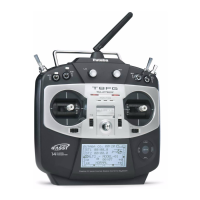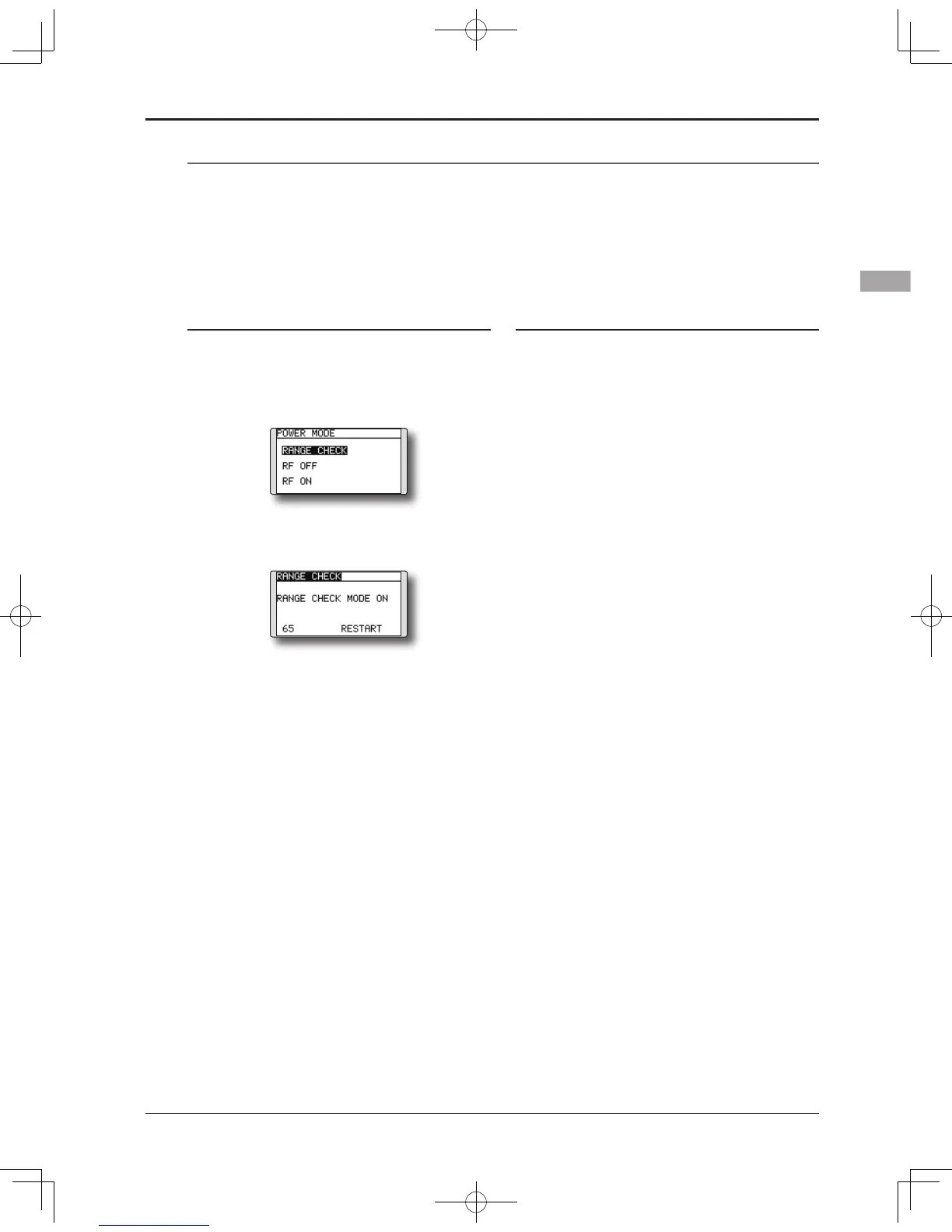Range Testing Your R/C System
It is extremely important to range check your models prior to each ying session. This enables you to
ensure that everything is functioning as it should and to obtain maximum enjoyment from your time ying.
The T8FG transmitter incorporates a system that reduces its power output and allows you to perform such
a range check.
Range check mode
We have installed a special "Range check
mode" for doing a ground range check. To access
the "Range check mode" touch and hold the RTN
button while turning on the transmitter. Doing so
will bring up POWER MODE menu.
To activate the "Range check mode" touch the
RTN button and the range check mode screen will
appear.
During this mode, the RF power output is
reduced so the range test can be performed. In
addition, when this mode is activated the right
LED on the front of the transmitter starts blinking
and the transmitter gives users a warning with a
beeping sound every 3 seconds.
The "Range check mode" continues for 90
seconds and after that the power will return
to the normal level. To exit the "Range check
mode" before the 90 seconds, select the "RANGE
CHECK" at the top of the screen and touch the
RTN button again. This mode is available one
time only so if you need to re-use this function the
transmitter power must be cycled. NEVER start
ying when the "Range check mode" is active.
Should you require additional time to perform
a range check, highlight Restart before your time
expires and press the RTN button one time.
Range check procedure
1. With the "Range check mode" on, walk
away from the model while simultaneously
operating the controls. Have an assistant
stand by the model to confirm that all
controls are completely and correctly
operational. You should be able to walk
approximately 30-50 paces from the model
without losing control.
2. If everything operates correctly, return to
the model. Set the transmitter in a safe, yet
accessible, location so it will be within reach
after starting the engine or motor. Be certain
the throttle stick is in the low throttle position,
then start the engine or motor. Perform
another range check with your assistant
holding the aircraft with the engine running
at various speeds. If the servos jitter or move
inadvertently, there may be a problem. We
wouldstronglysuggestyoudonotyuntilthe
sourceofthedifcultyhasbeendetermined.
Look for loose servo connections or binding
pushrods. Also, be certain that the battery
has been fully charged.

